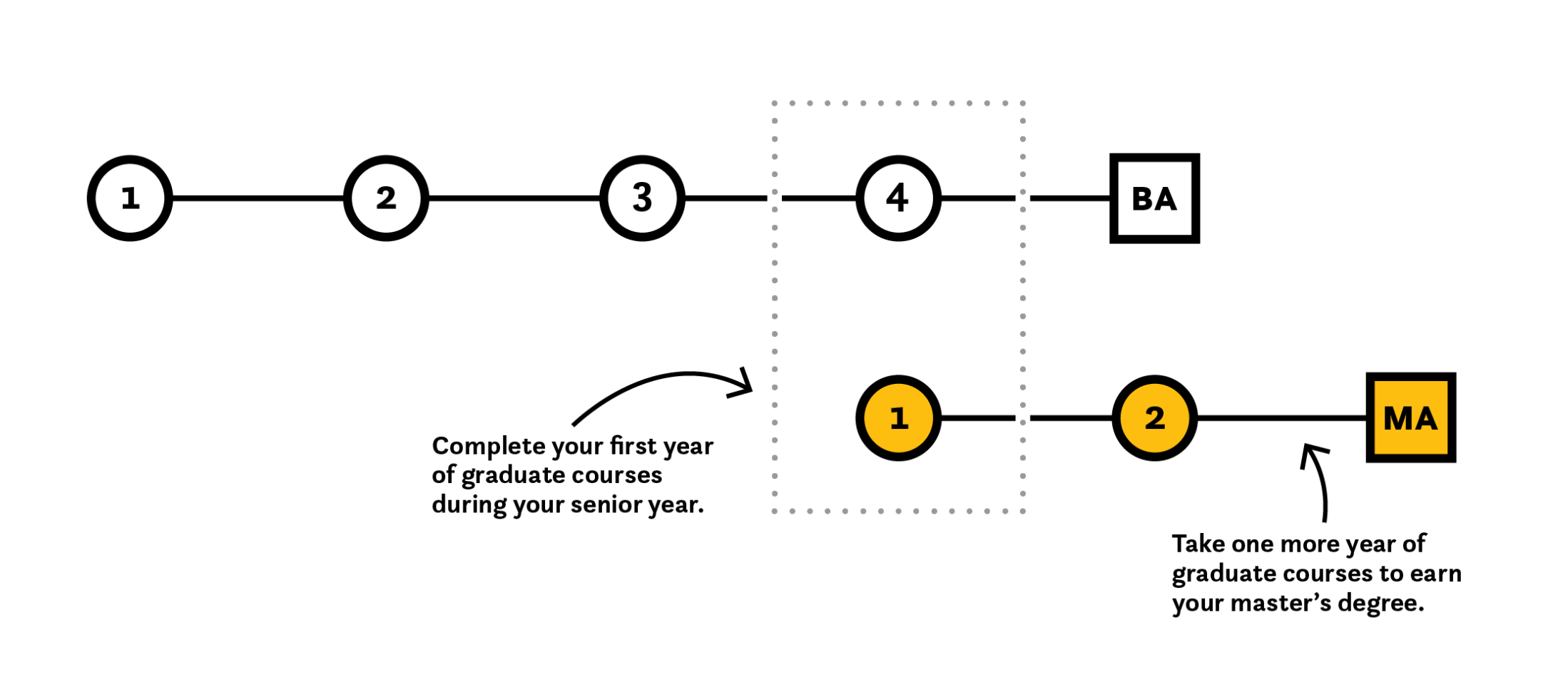
Progressive MA in Literary Editing and Publishing
Explore the roles of editor and publisher, with an emphasis on literary nonfiction, by applying to our innovative progressive master’s degree program in Literary Editing and Publishing.
About the Program
Current USC undergraduate students apply during their junior (or senior) year and begin their graduate course work the following year—and have the potential to earn both a bachelor’s and master’s degree in just five years.
This program is designed for exceptional students (particularly those with backgrounds in English Literature, Creative Writing, or Narrative Studies, or else students passionate in those areas) and lets you explore the roles of editor and publisher, emphasizing literary nonfiction. If the editor can be considered the “hidden coauthor,” then learning to become an editor requires deep literary reading, the insights of creative writing, and the elements of editing and publishing. Students admitted to the program will have a love of writing and a love of bringing others’ voices to the world.
Benefits
This is a progressive degree program, which means in the typical pattern of a junior applicant, you will start your master’s degree course work during your senior (fourth) year of undergraduate study. At the end of your senior year, you’ll finish your bachelor’s degree. Senior applicants may choose to stretch their undergraduate requirements into a fifth year, while simultaneously beginning graduate course work. All students will complete the next year as a full-time graduate student to finish the Master of Arts degree in Literary Editing and Publishing.
There is no application fee, and GRE scores are not required.

Admissions
Applicants should apply for admission to the progressive degree program during their junior (third) year of undergraduate study, or in certain cases during their senior (fourth) year of undergraduate study.
The overall deadline to apply for Fall 2026 admission to the LEAP progressive degree program is Wednesday, March 11th (5pm)
Seniors wishing to apply may apply by the above date or choose the senior-only early action deadline of Wednesday, January 7th (5pm)
-
GPA: 3.3 minimum
Total units completed: 64 minimum
Apply during your junior (or senior) year.Preparatory courses: You must complete at least one English course before applying. You’re strongly encouraged to complete one of the following before your first semester in the program:
- ENGL-300 “The Art and Craft of the Essay”
- ENGL-310 “Editing for Writers”
Alternatively, you may enroll in one of those courses concurrently with your first semester of graduate courses.
-
- A course plan, completed with your advisor
- Two letters of recommendation from USC faculty, at least one of which should be from the English department*
- A copy of your STARS report
- A statement of purpose (500 words)
- Essay prompt response (500–750 words)
- A writing sample of 7–10 pages, which may be critical or creative
- A resume
* This may not always be possible, so letters from faculty in related disciplines may also be considered.
Course Requirements
32 units are required for the degree. You will enroll in six units of graduate course work each semester of your fourth year of undergraduate study.
-
This seminar provides an overview of literary genres and publication practices in preparation for advanced study in later courses within the program. Materials will include representative works and a series of readings and conversations. Genres include fiction, literary nonfiction, poetry, and writing for stage and screen. Students will be introduced to the formal elements of these genres, and will practice writing short texts in each of these forms. Class time will be divided into lectures on the genres; seminar-style discussion of the texts; author visits; and workshop-style discussion of student work.
-
Explore editing and publishing within the tradition of literary and cultural influences on a wide range of authors, genres, and readers. You will embrace writing as an interaction, not a solitary activity but as our own small piece of a continuum.
-
This intensive workshop in applied English coordinates literary analysis with editing and publication, including relationships with authors; academic and trade presses; editing, and design. Practice editing as a craft, learning how to discover an author’s rhetorical and structural preferences, and explore techniques for combining editing, design, and production.
-
Examine in depth and put into practice the concepts and techniques unique to specific genres of nonfiction, including profile writing, science writing, memoir, food writing, place and travel writing, and personal essay. You will work intensively with one genre of nonfiction, and learn skills that are transferable to all forms of nonfiction writing and flexible to a transforming publishing landscape.
-
Introduction to skill sets needed to enter the profession; development of student interests as they fit in the literary landscape.
-
Compose, design, and fabricate electronic texts, prepare them for publication, and put them out into the world. Learn and analyze the formal, technical, and philosophical debates that have arisen as publication venues have expanded and evolved, and build a portfolio of work in multiple media that is informative and critically engaged.
-
Unsolicited manuscripts were said to arrive at a publisher’s office “over the transom”—over the small horizontal window above the door—to be found in a pile in the morning. Discover publishing on both sides of the electronic transom and cross the boundary from the author’s point of view to the editor’s, following a single piece of writing from manuscript to print or online publication.
-
Work side-by-side with practicing writers in Los Angeles—in media outlets, in news bureaus, with web content creators, and literary agencies—and see how they transform the media landscape and react to its changes. Explore the real-life demands of your chosen industry and the effect of those demands on the direction of your own work.
Financial Aid
The USC Financial Aid Office can provide guidance for students to apply for financial aid. Progressive degree students are classified as undergraduate students until their undergraduate degree is conferred or they complete 144 total (undergraduate plus graduate) units, whichever comes first.
Additional Resources
For critical overview information pertaining to any USC progressive degree program, be sure to read through this info page.
For questions regarding advisement and admission to the LEAP progressive degree program, contact program director Prof. Brighde Mullins.
Contact Us
USC Department of English
Taper Hall of Humanities 404
3501 Trousdale Parkway
Los Angeles, CA 90089-0354
213-740-2808
Hours of Operation
Monday – Friday, 8:30 a.m. – 5 p.m.
Hours may be adjusted for university holidays.
Department Leadership
Department Chair
Dana Johnson
danajohn@usc.edu
Director of Undergraduate Studies
Bea Sanford Russell
sanfordb@usc.edu
Director of Graduate Studies
Ashley Cohen
ashleylc@usc.edu